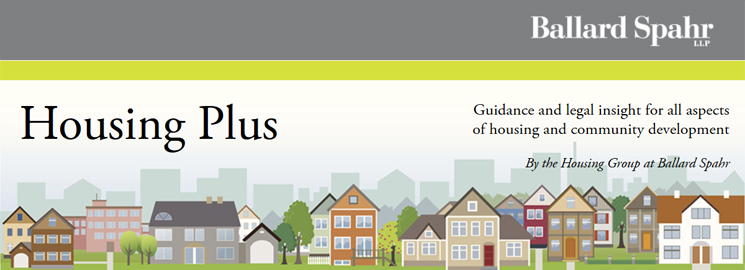
 On December 23, 2014, HUD issued a new notice clarifying its Davis-Bacon enforcement strategy for developments participating in the second component of the Rental Assistance Demonstration involving Rent Supplement and Rental Assistance Payments projects. While the initial legislation establishing RAD, the fiscal year 2012 appropriation bill, specifically requires Davis-Bacon compliance at all component 1 properties, the provisions of the legislation authorizing RAD’s second component are not as specific and text within the RAD 2012-32 (HA) notice establishing the RAD parameters does not specifically apply Davis-Bacon to the second component. HUD’s latest publication clarifies that Davis-Bacon is intended to apply to the first component only.
On December 23, 2014, HUD issued a new notice clarifying its Davis-Bacon enforcement strategy for developments participating in the second component of the Rental Assistance Demonstration involving Rent Supplement and Rental Assistance Payments projects. While the initial legislation establishing RAD, the fiscal year 2012 appropriation bill, specifically requires Davis-Bacon compliance at all component 1 properties, the provisions of the legislation authorizing RAD’s second component are not as specific and text within the RAD 2012-32 (HA) notice establishing the RAD parameters does not specifically apply Davis-Bacon to the second component. HUD’s latest publication clarifies that Davis-Bacon is intended to apply to the first component only.
Pursuant to the Housing and Economic Recovery Act of 2008 and subsequent HUD rules and notices, the development of project-based voucher projects with nine or more assisted units are required to comply with Davis-Bacon wage and reporting requirements. These regulations also required Davis-Bacon wages for development or rehabilitation activity at “existing housing” projects.
With respect to RAD conversions, the notice indicates that HUD will proceed as follows:
-
1st component RAD projects. As specified in the authorizing legislation, any Public Housing or Moderate Rehabilitation projects undergoing a RAD conversion must comply with Davis-Bacon wage and reporting requirements.
-
2nd component RAD projects. Rent Supplement, Rental Assistance Payment, and Moderate Rehabilitation properties converting to tenant-based voucher assistance under this component must utilize Davis-Bacon wages if they are approved after December 31, 2014. HUD will enforce Davis-Bacon requirements at all projects approved prior to year’s end only if the RAD application made explicit mention of the Davis-Bacon Act.
The notice also cautions, however, that it does not stay enforcement actions by the U.S. Department of Labor, so it is still possible that RAD second component projects that follow the Notice’s requirements could still be subject to enforcement actions. It should also be noted that this Notice, like all notices, is HUD guidance and does not have the force of law.
For more information, visit HUD’s Rental Assistance Demonstration or Labor Standards and Enforcements webpages.